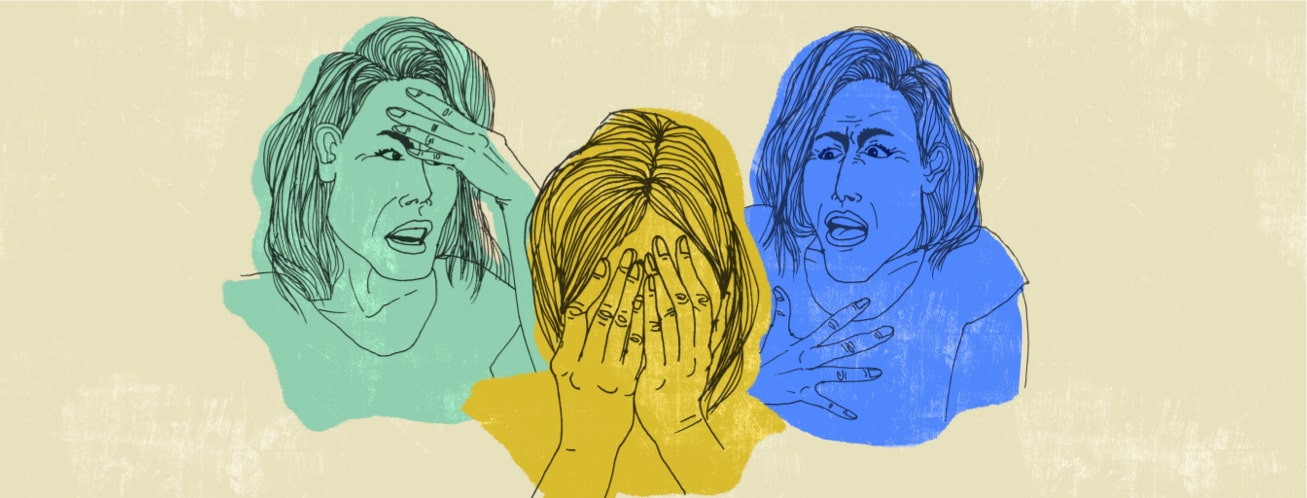How to Manage Extreme Stressors with Bipolar Disorder
I find I am less able to cope with extreme stressors because of bipolar disorder. It’s not that these kinds of stressors don’t affect your average person – they do – it just seems like they affect me more severely. Not only do stressors affect my everyday functioning, but they can actually induce a full-blown mood episode that can well outlast the stressor.
Here are a few tidbits about dealing with major stressors when you have bipolar disorder.
What’s an extreme stressor?
What a person considers to be an extreme stressor is going to vary from person to person – so “extreme” is whatever you find it to be. That said, experts have identified some events considered to be the most stressful.1 These include:
- Death of a loved one
- Divorce
- Incarceration
- Being fired or laid off
- Retirement
- Pregnancy
As you can see, these are everyday events – some may even be seen as positive – but that doesn’t mean people don’t find them to be incredibly stressful.
Extreme stress and bipolar disorder
People feel extreme stressors in their lives in many ways. To no one’s surprise, extreme stressors affect my mental health dramatically. I feel extreme stress as an exaggerated form of anxiety. This manifests as:
- Extreme restlessness and being keyed up
- An inability to concentrate
- Notable irritability
- Muscle tension
- Insomnia
- Constant worry
- Incessant ruminations
- Distressing, intrusive thoughts
- Heat in the body (mostly my head)
I feel like my insides are violently vibrating, and I have to hang on to the world lest I fly off.
All of this is incapacitating. I find myself unable to do much beyond breathe. Doing anything beyond what is absolutely required for life is impossible.
Of course, this is highly problematic because stressors normally require some sort of action. If you’ve been laid off, you need to look for work; if someone has died, you need to make plans, and so on. Sitting on the couch hugging my knees doesn’t tend to accomplish much, and yet it’s the only thing I feel like I can do.
And while anyone can feel incapacitated by stress, I find my bipolar disorder makes me far more susceptible to incapacitation. I think it’s because my mental health is already running close to the edge, and it takes far less to push me off.
Taking action when struggling
Once I recognize I’m experiencing extreme stress, there are actions that need to be taken.
The first thing is to reach out to others and tell them what is going on. It’s time for people like family, friends, a psychiatrist, a therapist, and others to provide support. People like your loved ones can help you deal with what you need to do to handle the stress and be there for you emotionally, and people like your psychiatrist can help make sure that the stressor doesn’t push you into a full-blown mood episode. All of this is critical.
Making a plan when overwhelmed
Secondly, I need to take a step back and assess what I need to do in my own life to deal with the stressor. For example, I might need to consider how I will find a new job or how I will pack the belongings of my deceased loved one.
Once I determine what I need to do, I need to create a plan to do it. The important part of this step is determining what other people can help with. If I’m overwhelmed to the point of being incapacitated, other people need to step in and pick up some of the slack if at all possible. For example, someone could help me update my resume or pack up my loved one’s things. Someone could also help by providing everyday support like cooking and cleaning for me when these things fall by the wayside.
Then I put my coping plan into place one tiny step at a time. If I can only work my plan for five minutes a day and spend the rest of the time taking care of myself, then that’s what needs to happen.
Put your mental health first
All of the above is dictated by one guiding principle: put your mental health first. This is imperative. If your mental health is harmed, your life will get worse, and it will be that much harder to cope with whatever the stressor is. It might seem like other things matter more, but they absolutely don’t. Keeping you alive and well is always the first priority. A new job will wait. Your loved one’s house can be packed up tomorrow. Because you can’t do anything at all if your bipolar disorder requires inpatient treatment. Remember, that’s where you’re headed if you don’t do what it takes to protect your mental health.
So, while extreme stressors can be very challenging, it is possible to get through them successfully by remembering to treat your mental health with the respect it deserves.
